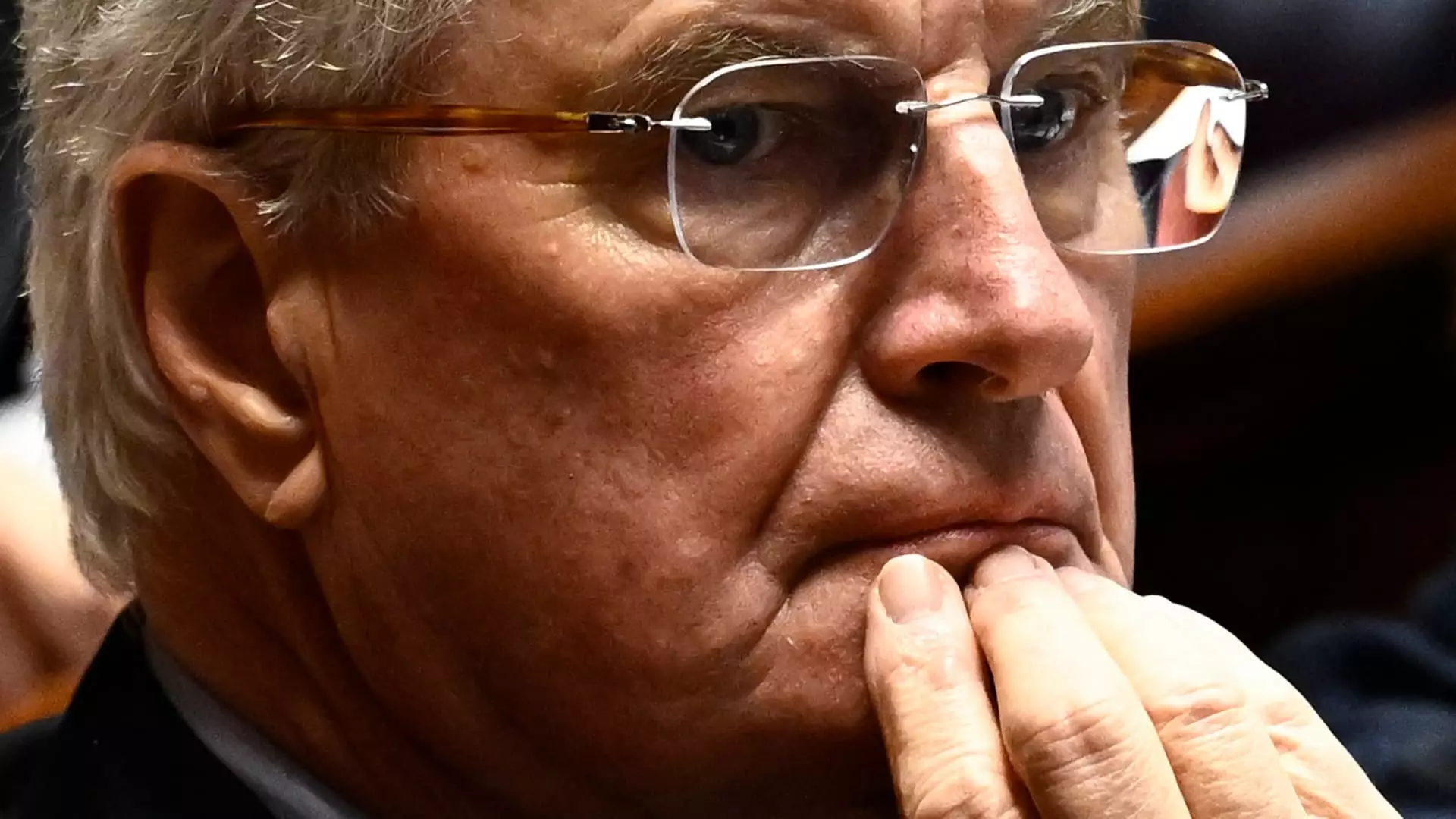European politics is presently characterized by a remarkable degree of instability and uncertainty, as several nations grapple with their budgetary frameworks amidst rising pressures from both domestic and international fronts. The latest events unfolding in France have thrust the government precariously close to collapse, as Prime Minister Michel Barnier faces a severe crisis following his refusal to yield to demands from both right and left political factions. His impending no-confidence vote on Wednesday is expected to spell doom for his government, marking a significant moment in French history, which highlights a wider pattern of political volatility across Europe.
In addition to France, Germany is also navigating turbulent waters, preparing for a potential snap election early next year, fueled by its own internal governmental dissent. Chancellor Olaf Scholz is under scrutiny as questions loom regarding the coalition’s ability to maintain coherent fiscal oversight, particularly in light of recent aid commitments to Ukraine. The interwoven issues of fiscal policy and international obligations only serve to exacerbate the tensions felt throughout Europe, as nations confront the implications of strict European Union (EU) budgetary rules.
One of the most pressing challenges for EU member states is the adherence to post-pandemic fiscal regulations, which are increasingly scrutinized by the European Commission. Traditionally perceived as budgetary nonconformists, countries such as France, Italy, and Greece are now joined by more fiscally conservative nations like Germany and Austria in jeopardizing compliance with stipulated deficit ratios. The EU mandates a 3% deficit cap and a maximum debt limit of 60% of GDP, but enforcement has proved stringent and unforgiving.
Interestingly, these rules have garnered renewed attention as they not only assess yearly financial plans but also evaluate their long-term sustainability and impacts on national deficits. Barnier’s ambitious attempt to implement draconian tax hikes and cuts totaling €60 billion demonstrates the lengths to which his administration is willing to go, but at what cost? Critics argue that the potential fallout may render him the shortest-serving Prime Minister since 1958, a stark reminder of how deeply intertwined fiscal exigencies are with political survival.
The ramifications of budget decisions extend far beyond national borders and can precipitate widespread economic turmoil, evidenced by the declining French stock market and increasing borrowing costs. Financial confidence diminishes as misunderstandings and disagreements over budgets erode stability, driving fear and uncertainty among investors. The absence of confidence in governance can create a vicious cycle—causing further economic decline, which in turn amplifies political discord.
Across the English Channel, complications arise in the United Kingdom under the leadership of Prime Minister Keir Starmer and Finance Minister Rachel Reeves. Just months into their administration, they find themselves ensnared in budgetary disputes that threaten the very foundation of their government. Manufacturing has suffered, reflecting the negative implications of taxation proposals. As financial stability wavers, political casualties are inevitable, revealing the intricate relationship between well-being of citizens and government effectiveness.
A Looming Crisis of European Identity
The overarching themes of stagnation and instability in Europe have reached a crescendo, provoking thoughts on the continent’s identity. Global chief investment officer at BNP Paribas Wealth Management, Edmund Shing, pointedly remarked on the fragile political state of Europe juxtaposed against the clarity emerging in U.S. governance post-election. The insistence on adhering to strict fiscal rules during this delicate period raises troubling questions about coherence and unity among member states, leaving many to ponder the longer-term implications of this political malaise.
It is becoming increasingly clear that Europe stands at a crossroads; without cohesive and effective budgetary governance, potential further political fallout may only worsen the crisis. As nations stare down the barrel of no-confidence votes and the specter of early elections looms large, the need for unity and a shared vision has never been more pressing. The consequences of budgeting failures will reverberate throughout the continent for the foreseeable future, forcing Europe to collectively confront—and address—the challenges at its doorstep.


Leave a Reply